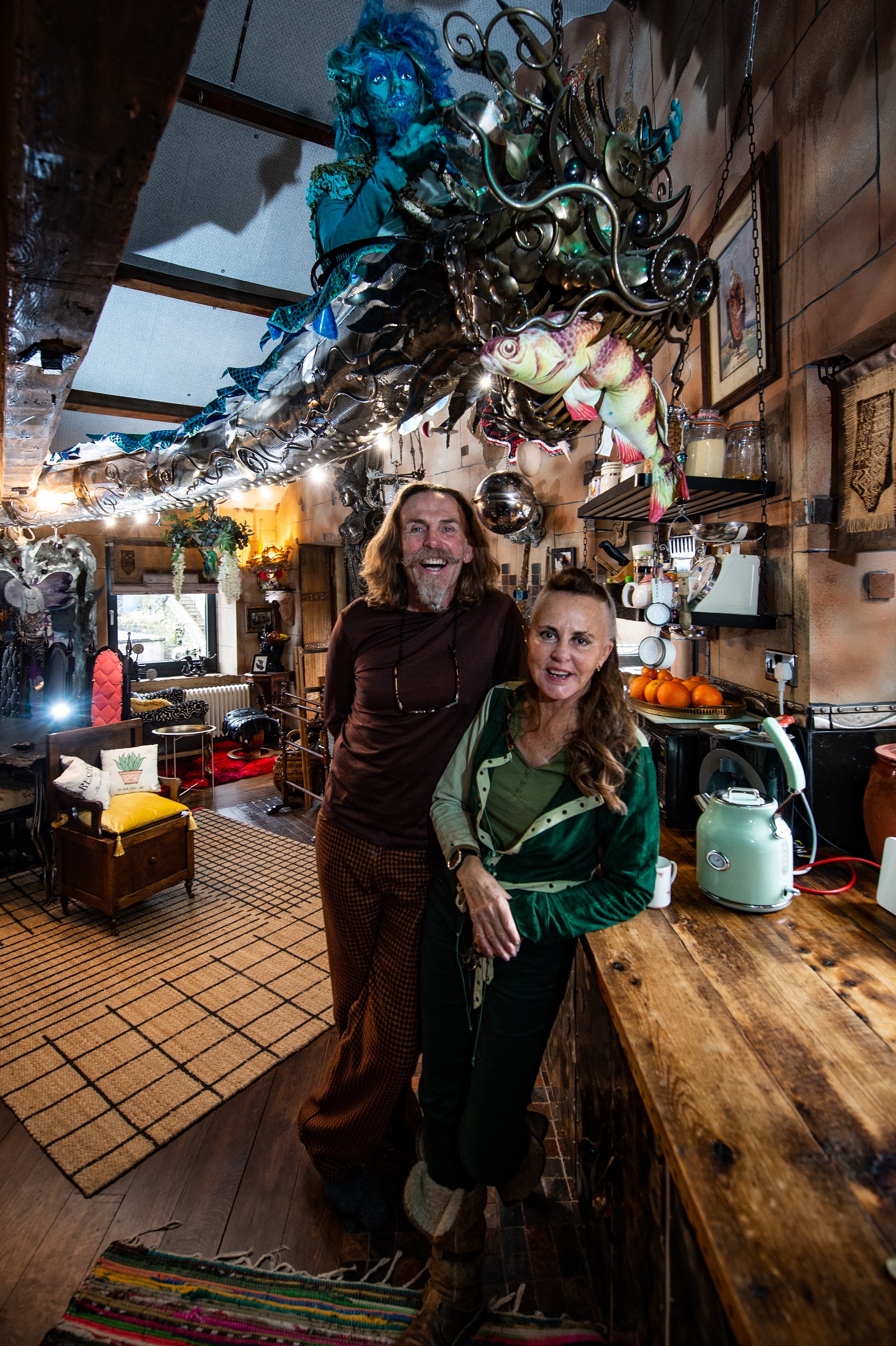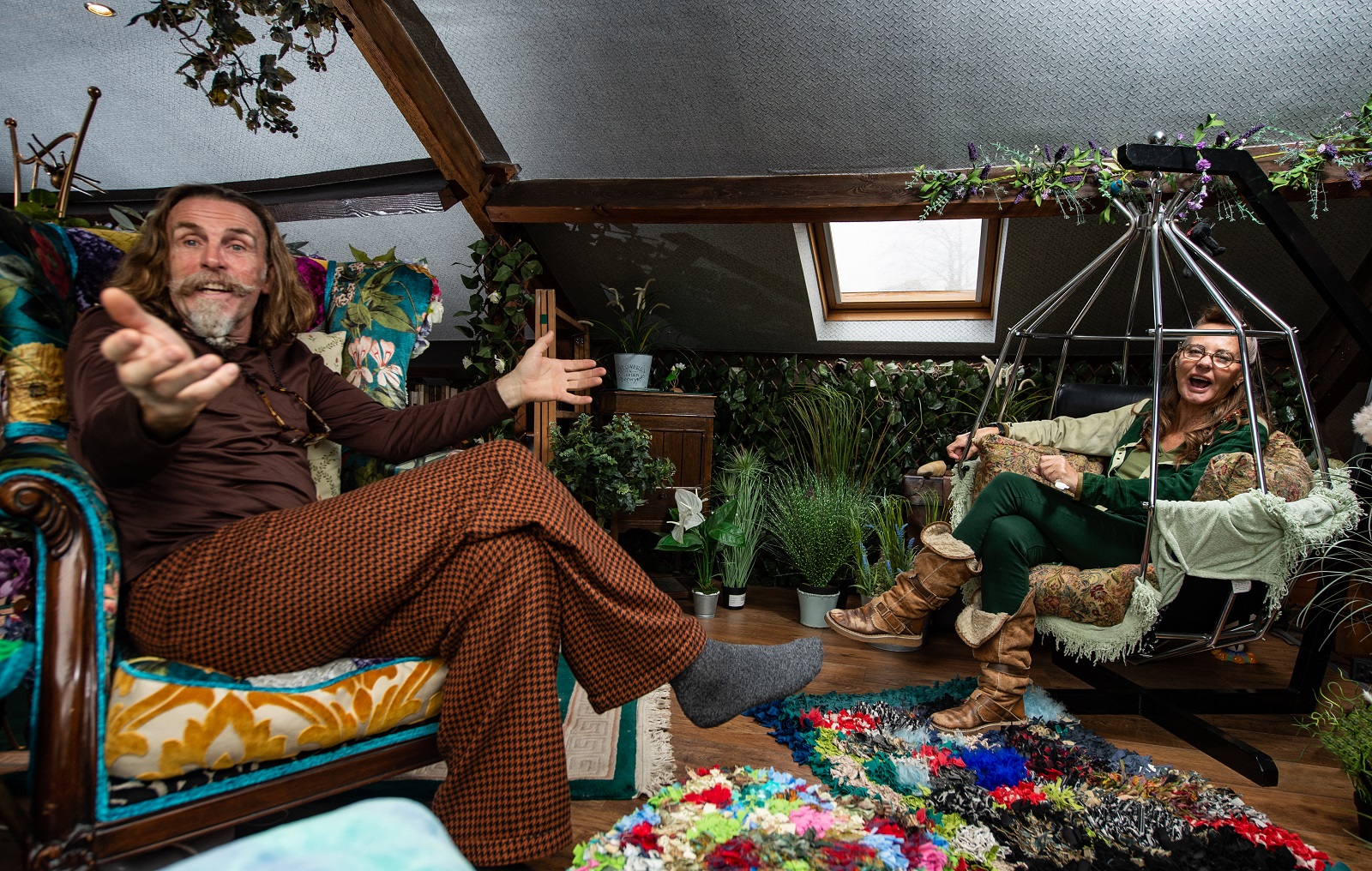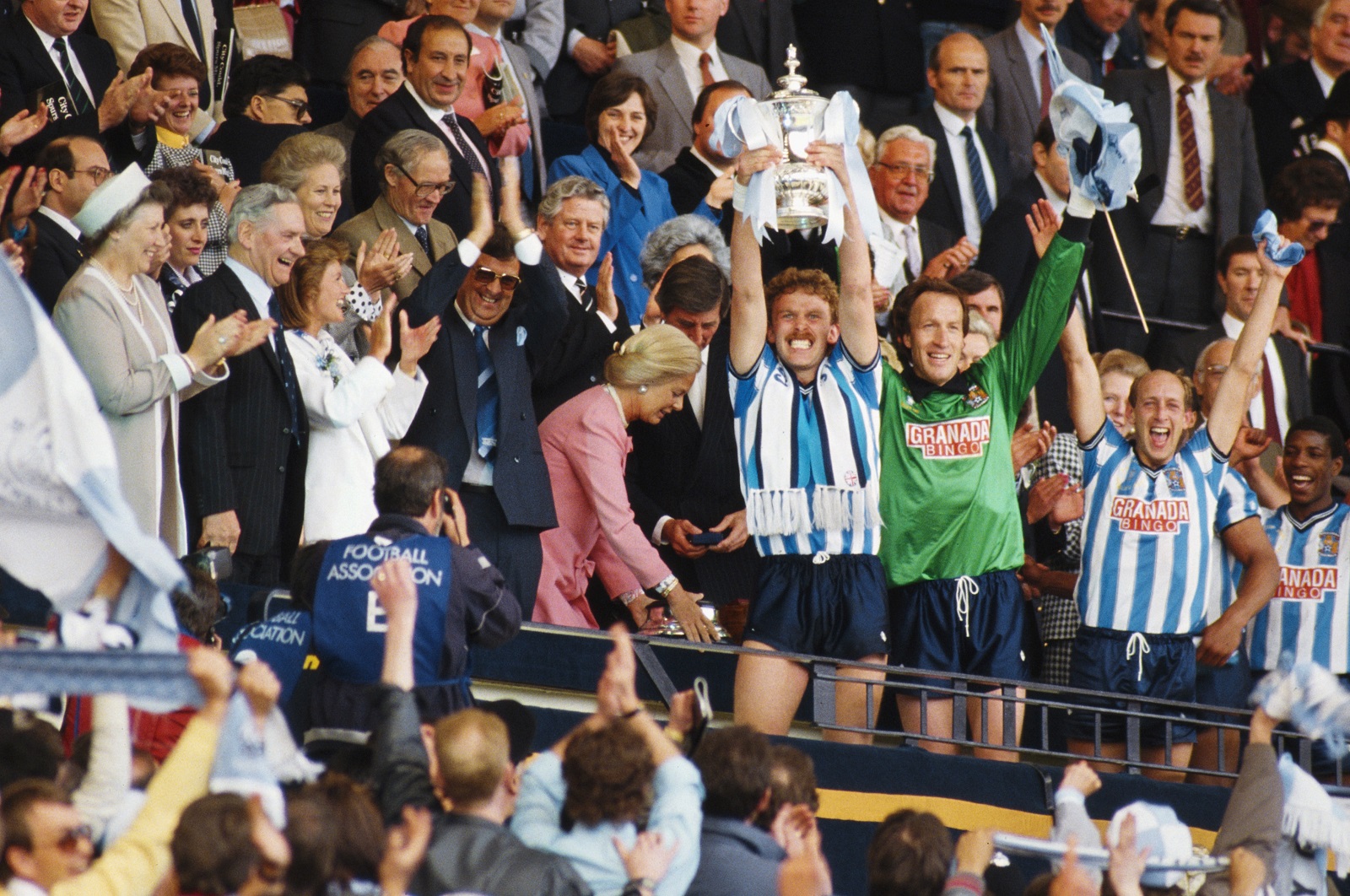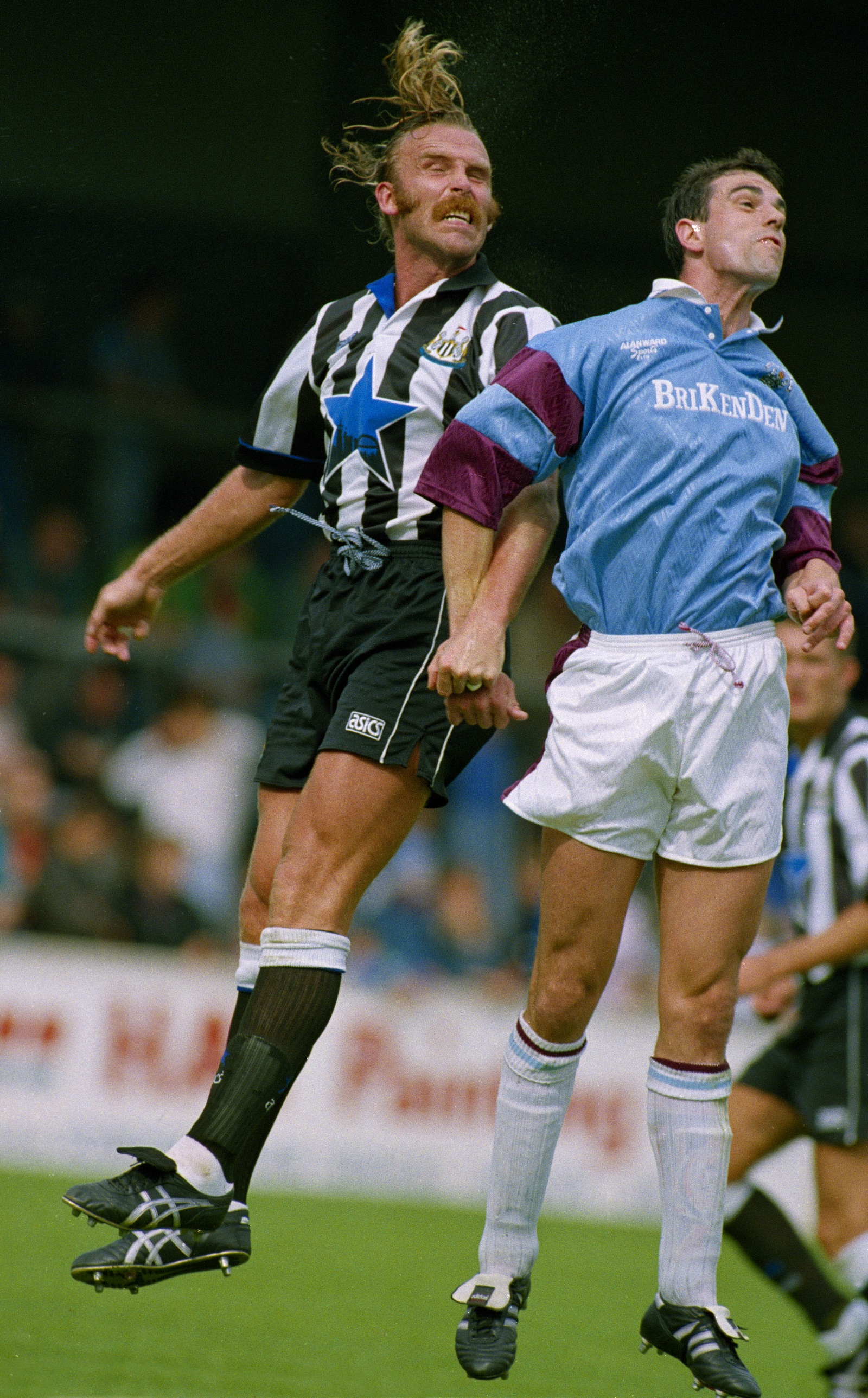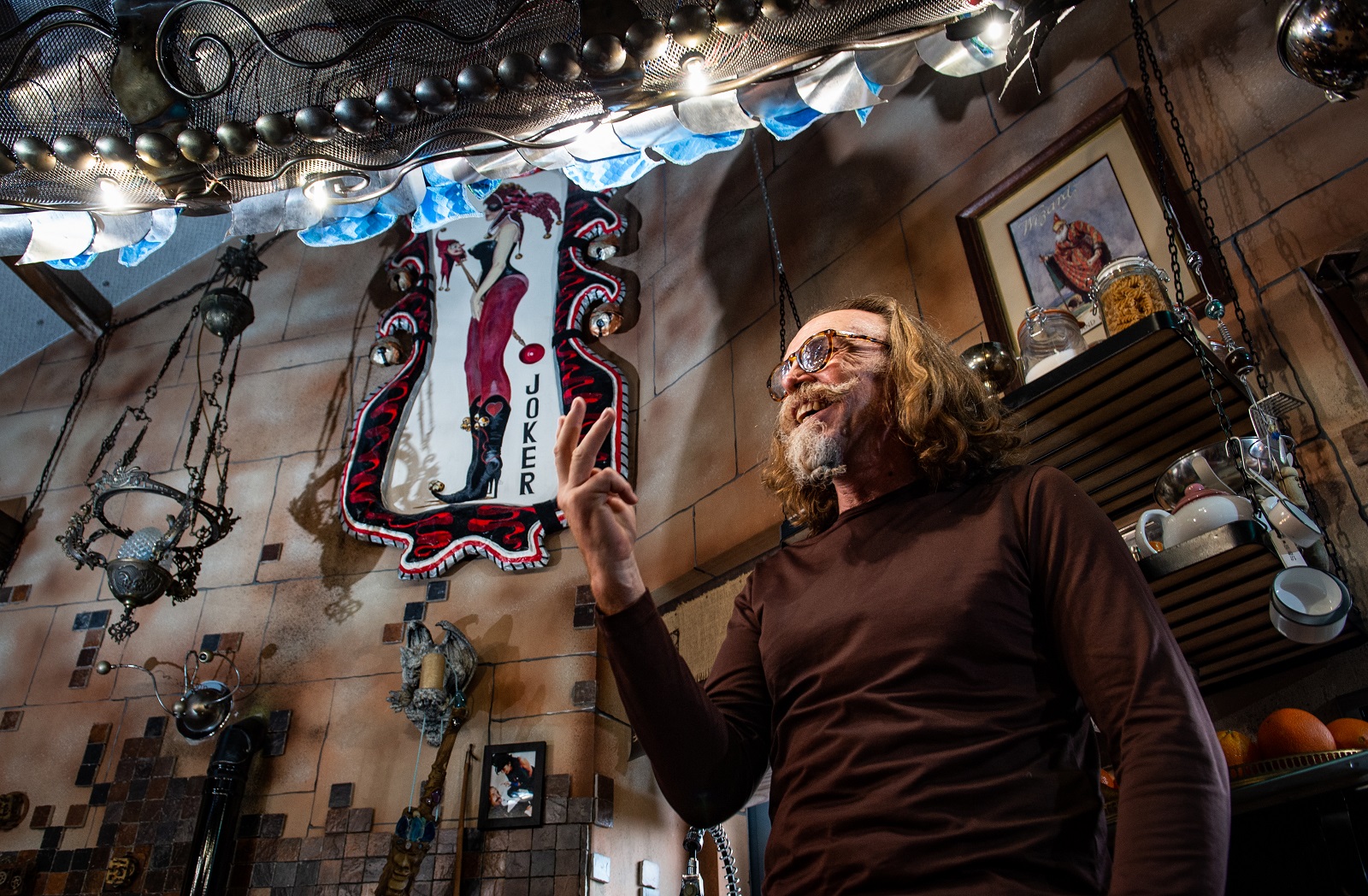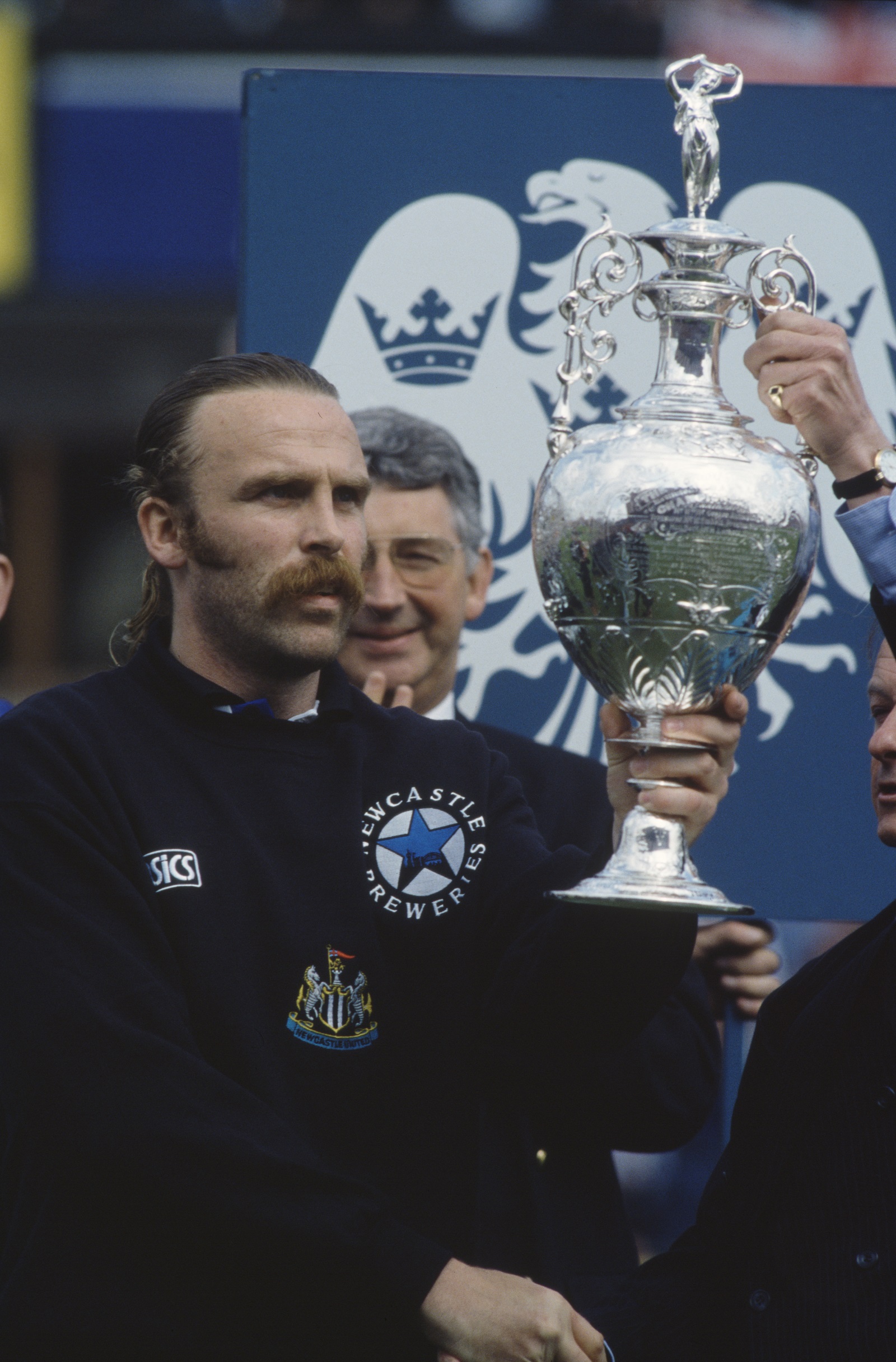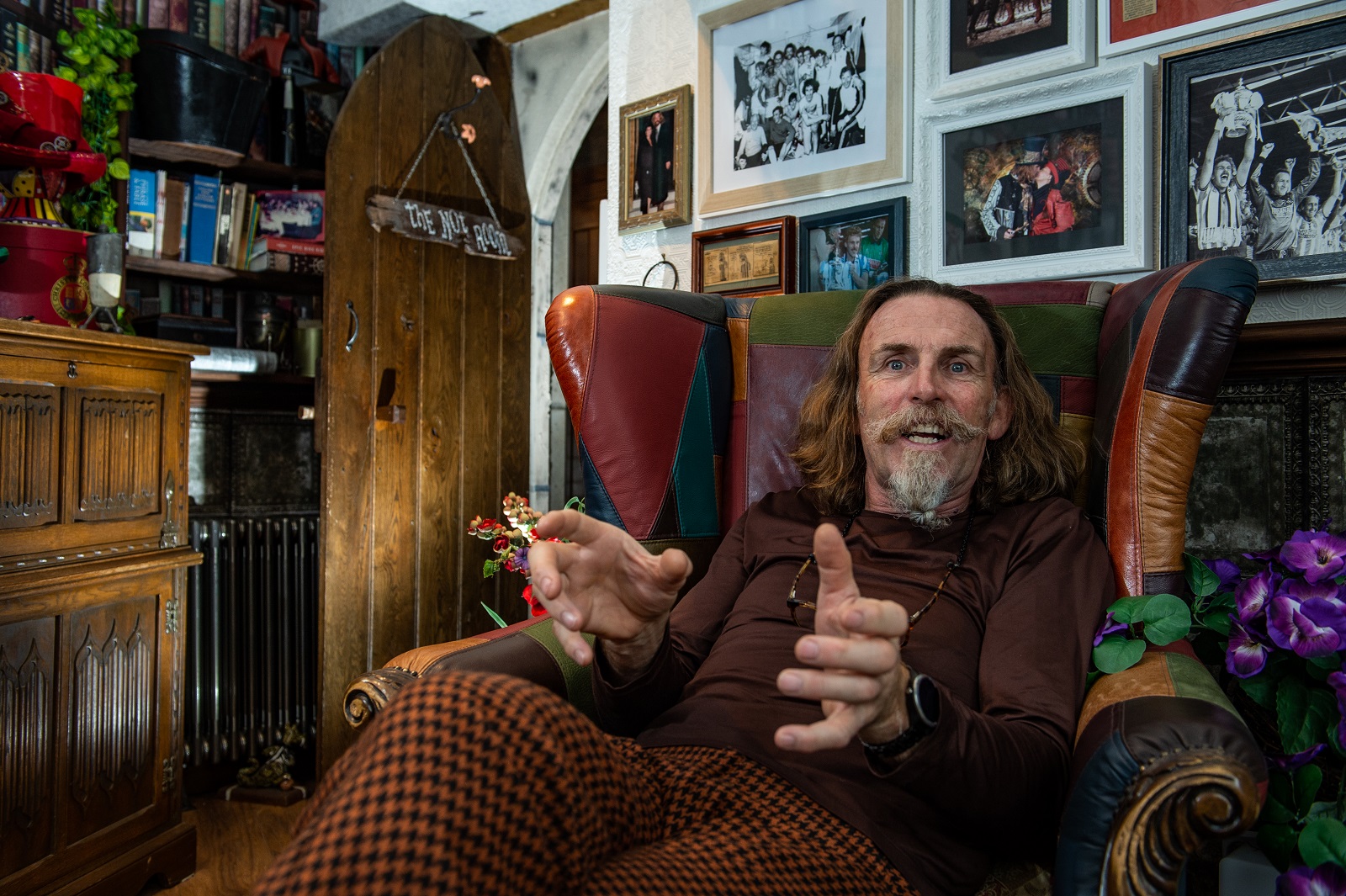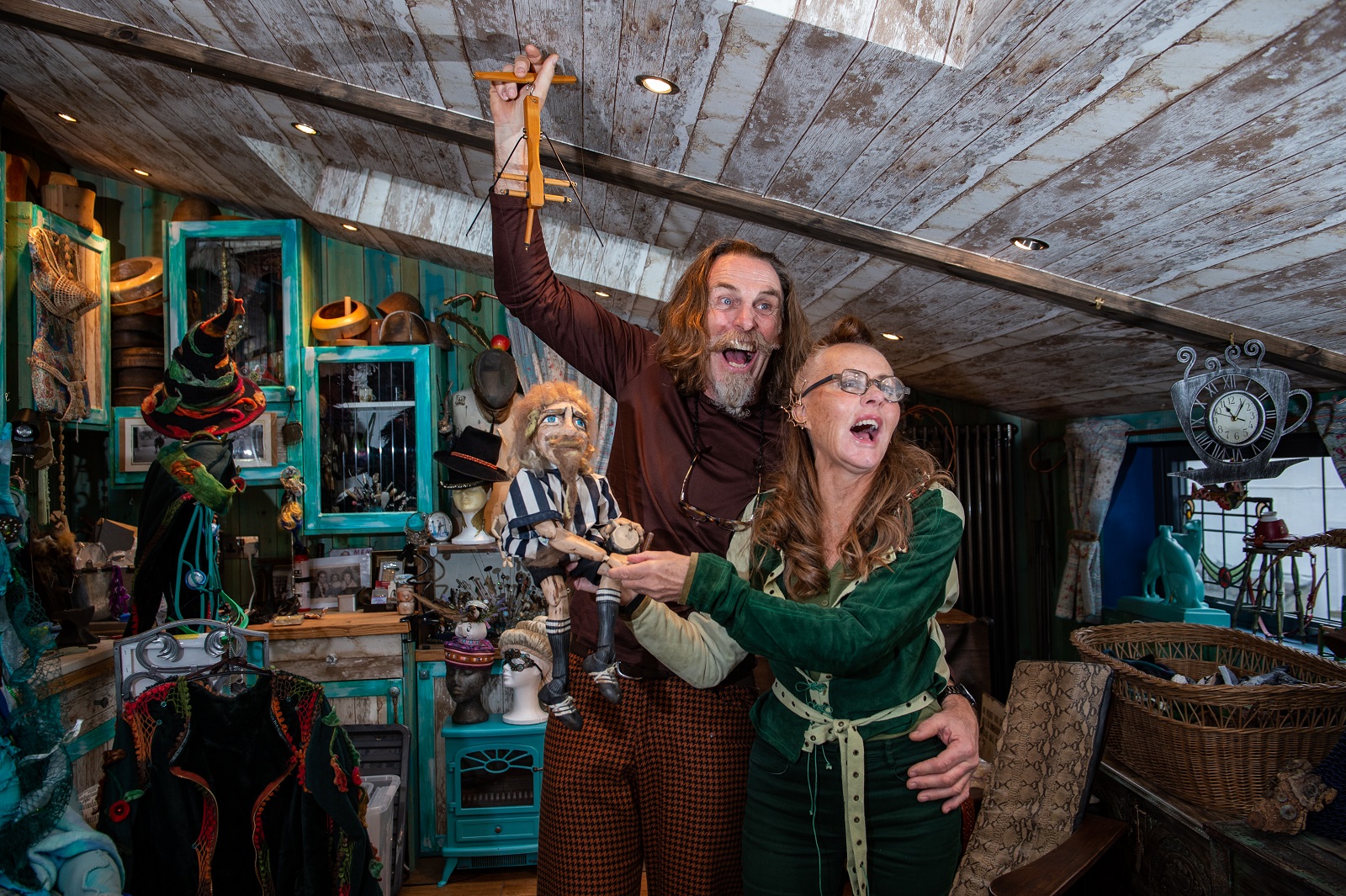Features
An afternoon with Brian Kilcline
Written by Tom Easterby
"Sorry for the delay in replying," writes Lynn Kilcline, responding to my email asking whether it might be possible to interview her husband, Brian, to mark an upcoming anniversary. "It has taken me three days to bring Brian round from the fact that it is almost 30 years since he signed for Newcastle. He does not accept this, as he thinks he is only 28."
In February 1992, Brian Kilcline – the rugged, moustached, lion-haired centre half known as 'Killer' – joined the Magpies. Now in his 60th year, he looks in fine shape as he guides me into a parking bay by the home he shares with his wife in Holmfirth, West Yorkshire. It is a sleepy town, best known for being the setting for Last of the Summer Wine, but that feels pretty distant as I pull up in front of a garage door bearing a painting of a dragon hatching from an egg.
The Kilclines are wonderful hosts, friendly and full of energy and laughter, and their house is fascinating. The head of a huge metal dragon, Ouroboros, greets you as you enter the kitchen and its body – all nine metres of it – snakes around the corner to the lounge. There is a gothic feel to the place and some of the fixtures catch the eye: a stuffed crow called Poe, brought back in the car from a trip to Newcastle, a dummy called Elf which acts as a makeshift Christmas tree and a wooden commode next to the dining table. "I think we were keeping our wedding rings in there actually," jokes Lynn.
It is a tangibly happy home. Kilcline puts the kettle on as we chat and Lynn goes downstairs. "What’s this article about then?" he asks. I mumble something about it being almost 30 years since he signed as his wife reappears in the doorway, giggling. "It's been a hundred years!" she calls over. He shakes his head in a gently chiding way. "30 years? I still feel as young as I was then."
Brian, Lynn and Ouroboros the dragon
Football – "a ******* of game, but a microcosm of what life is about really" – never defined Kilcline the man and he still looks at his experiences in a philosophical light. "I've been lucky in a lot of things. I've been lucky in football, lucky in life. I would never knock it. I've had some hard times, but I can't even remember them."
Much of the last 13 years has been spent doing up houses and managing rental properties in Holmfirth and Portugal. When Kilcline played for Newcastle, the couple lived in a farmhouse not too far from where they are based now. He coached two local teams in his spare time and one of them, Cartworth, was full of tradesmen. They introduced him to the world of renovation and he loved it; the learning of new skills, the smashing things up and reassembling, the solitude of hard graft.
"I don't mind being on my own. Sometimes I can drive people ******* barmy," he smiles. "If you drive yourself barmy, it doesn't matter. I found out a long, long time ago that before you can like anybody, you've got to like yourself. I don't mind myself, and I think sometimes it can be infectious. You can go out and be around people, and they like that. Sometimes life can be very boring. But it's never boring for me."
Has it ever been? "No. And I've been lucky, because Lynn's as mad as me. She's a bit calmer though – she calms me down. She's my gaffer. If it wasn't for her, I'd be dead by now. I'd have been dead." Really? "Oh God, yeah. I was as mad as a March hare." In what way? "Every way. Not the good ways. She calmed me down."
They married in Oxford in 1994, the day after Kilcline had partaken, rather enthusiastically, in Swindon Town's Christmas party. "I was mortal," he chortles. "I love that word – you can throw that one in. Absolutely mortal." They went into a local pub and picked out an Australian from behind the bar to be his best man and a South African to act as witness. A friend who worked for The Sun took their wedding photos in a nearby graveyard. "A lot of the time, when you have weddings, you're more worried about the guests and everybody else instead of the one person you should be worried about – the person you're marrying," he adds. "We never had anything to worry about besides each other."
He is still in touch with his best man, Andy, and flew out to Australia to attend his wedding. After finishing with football, the couple travelled to India, Thailand, Bali, Vietnam, Russia, South Africa, anywhere that held an interest and brought new people to meet. Lynn wrote a book about their adventures. "It's taught us a lot. We're like that," he says, pinching his thumb and index finger together. "We're just a little speck in this world. Everybody should travel. Sometimes, people can get very insular if they stay in one place."
A call from a tenant interrupts briefly and it reminds Kilcline how glad he is they did all this work on their new life while they were still young enough to handle all the problems it can bring. "But now I'm 30…" he says, flashing a grin behind his circular glasses. Anyway, 1992. Newcastle.
"The drive up – unbelievable. Lynn said I was ashen – just nerves, just not knowing what to expect," he begins. "I didn't have an agent or anything like that. It was just me and Lynn in the car driving up the A1, rocking up at the old St. James' Park. Kevin Keegan and Terry Mac (McDermott) came down the steps and took me in."
What made you nervous? "Newcastle!" he booms. "Going from Oldham, up to Newcastle, Terry Mac and Kevin Keegan… even though I had played against them, you knew what they were like. You knew them as players. They were icons then, the pair of them. I didn't really know what Newcastle was like. I'd played against them a few times but all you see is a football pitch – you don’t see what goes with it. It's not until you actually turn round the corner and see the stadium. Then you think, '******* hell'."
He was Keegan's first signing as manager and, famously, the one he named as his best. Kilcline realises now that his signing proved to the club's hierarchy that their rookie manager knew what he was doing. "He treated (the club's) money like it was his own," he says. "Have you ever interviewed Kevin?" No, but I'd love to. "You'd be totally engrossed in his company. He's ******* brilliant."
Kilcline lifts the FA Cup as Coventry City captain in 1987
Kilcline was 29 by then, an FA Cup-winning captain at Coventry City almost five years previously, entering a young United dressing "full of comedians". "They all were! Clarky (Lee Clark) was unbelievable, he was hyper. Steve Watson was a bit more chilled. Steve Howey was chilled, but I think he might have come out of his shell a bit. The Geordies did have the craic then. They knew how to have the craic, and they could back it up with what they could do with the ball."
He remembers the build-up to his first Tyne-Wear derby, a month after he joined. He was staying at the Gosforth Park Hotel that weekend and sought instructions from Keegan. "I've gone up to him and said to him, 'what do you want me to do? How do you want me to go about this game?' He just turned round, looked at me and said, 'just be yourself'. '******* what? What does that mean?'
"So I went for a walk around the Gosforth Park and said to people, 'right, this game against Sunderland – what's the craic here?' And without hesitation, every Newcastle supporter in that hotel said, 'break them in two', 'snap them in half' – as long as you annihilate Sunderland, that's all they were worried about. Then I understood what Keegan meant when he said 'just be yourself'."
'Killer' in action for the Magpies against Scunthorpe in 1993
Notoriously uncompromising, Kilcline says he felt like "a mobile cork", plugging defensive gaps wherever they popped up in a Newcastle team in real danger of relegation to the Third Division. People – teammates, supporters, staff – responded to his immense presence. How did that happen? "In football, it can be your first tackle," he shrugs. "If you **** up once, the better players can come back from that. Sometimes the players who aren't as good can do that once and not come back from it.
"So your first tackle, your first pass, was always very important. You can build from that. But that's life! The first thing you do in your job, the first thing you hit with a hammer – it's all the same. That's why the electricians, the plumbers, the chippies – if they **** up, they can sort it. They know what they're doing. If you're a good old footballer and you **** up – and it's a lot harder to – you can deal with it.
"It's giving something 100 per cent – players can see that as well, and feed off that. Players can tell if someone's not trying. They know if someone's not pulling a leg. I was lucky because they all knew what they were doing. I don't know what the **** they were doing before – I don't know if some people were not pulling their weight – but I never saw that. I never, ever saw that. The lads I played with, they were all good players. I couldn’t understand why they were where they were."
He again makes the point that he was lucky – lucky to be there, fortunate that it all just felt right, and it feels like he is doing himself a bit of a disservice. He shakes his head. "You can't ever pat yourself on the back. It's only your peers and the people around you that know. And if I wasn’t being dug out, if people weren't calling me names, I wasn’t doing my job right. Do you understand? Bring it on." He reckons, with his considerable frame and unique appearance, he was simply more visible than others, and that highlighted the extremes of his style. "I wasn't nasty. I don't think I've ever snapped somebody in half," he says, and there is a slight pause, "naughtily. I've done it fairly. If somebody is six foot four going through somebody, it's a lot messier than somebody that's a lot lighter."
Nottingham-born Kilcline recalls doing his coaching badges at Lilleshall, and seeing Dave Sexton overseeing a session with young players practising sliding tackles. They had smiles on their faces, they were enjoying it, and it resonated with him. Didn't he bring a bit of that fun to Newcastle? "Yeah, but Kevin Keegan had that. Terry Mac had that," he says. "There was a guy called Chris Guthrie – remember him? He was the kitman. He was very dour, but he ended up laughing. Everybody was laughing. People just wanted to come into work, to take the mickey and have a laugh. I was just laughing all the time."
The club's situation was still perilous. They were 22nd, three points off the bottom, when he joined. Kilcline wasn't worried about it but accepts that Keegan and McDermott's rapidly greying hair indicated not everyone was quite as calm. He says there was even some reticence when it came to going out to warm up before matches (a feeling he didn't share – “**** that!” was his take). After that Sunderland game, he recalls getting lost during a pre-match walk at Wolves, resulting in a dash to the stadium on the bus, a 6-2 defeat and an injury. But that United, Keegan's United, kept moving on, undeterred. "I just wanted more. You're just greedy for it. I think they all wanted it. There was something going on there, and we wanted it. If we carried on doing what we were doing, we felt we were going to get it."
He can't remember much about the crucial match away at Leicester on the final day of the season, apart from seeing two nuns at the game. "I think we won," he grins, knowingly. Steve Walsh’s 89th-minute equaliser for the Foxes meant Newcastle were relying on results elsewhere for survival. But a minute later the same player, under pressure from Gavin Peacock, somehow scored an own goal.
Newcastle won 2-1, stayed in the Second Division, and Keegan had the platform from which to build his revolution. Kilcline had driven to the game from Holmfirth and left his car on a road near Filbert Street before the game. He returned, job done, to find the police had towed it away, leaving him to wade through the throes of fans to find the nearest station and ask if he could have his car back.
He made just 45 appearances for Newcastle before leaving for Swindon in 1994 but Kilcline remains a bona fide cult hero. He did what he was brought in to do – keep them up – and knew when it was time to go, even after helping them win the Second Division title a year after that day at Leicester. He is not the type to dwell but one slight annoyance about his time at Newcastle remains. He really, really wanted to score a goal. "I'd love to have known what I would have done if I had," he says, though it is perhaps best to leave that to the imagination.
Kilcline helped the Magpies win the Second Division title in 1992/93
The hair is a little longer now and the moustache, twizzled majestically at the sides, is just as thick as it was in the early 1990s. It must have taken some strength of character to carry that look through football dressing rooms for almost two decades. "Yeah, but sometimes you can hide behind things like that. So by looking different, you don't have to say anything," he points out. "I was a very shy person – I am a very shy person. But sometimes you can hide behind what you look like. I don't know why that is. You can make a statement without saying something."
Did you do that? "Sometimes, yeah. But I was always brought up to watch your back. Nottingham was a very bright and vibrant place. Because of the places you used to frequent, you had to be careful. You were always watching your back. People always wanted to have a go at you. You didn't have to be too shy. That might have happened a couple of times with me."
The passing of time since those days came into sharper focus when he heard about the passing of John Sillett, his manager at Coventry, in November. "We'll all get like that," he says. "But we're no age really. I'm only 23." He has kept few mementos from his time in the game. There is a small cushion, made by a Newcastle fan, embroidered with the words 'reserved for Brian Kilcline', and after a rummage in the corner he hands me a pack of Lamb’s Navy Rum playing cards. "They were last used May 1987, on the way to Wembley. They were the cards that me, John Sillett, Trevor Peake and Dave Bennett played with." What about a slightly more valuable keepsake from that day? "I think I've seen the cup final medal twice in 30-odd years. I've looked at it twice. It's something I did, enjoyed it, it's done. Go to somewhere else now, do something else."
He has found his place now but retirement was tough at first. "Lynn said I was a bit of an arse for a while, for about a month or two when I decided that was it. You're a bit lost. You're a bit adrift. That's why I started taking it out on walls. With my head, sometimes. It's hard, because what else do you know?"
Football was just one part of his life, though, and he has collected enough tales from it to last a lifetime. There's a great one about what happened after he broke his nose during his last game for Mansfield. There's one about how, at 35, he was sat outside on a concrete step one afternoon, midway through doing up a house, and by the time he'd got back inside he’d agreed to join Halifax Town. Some of the anecdotes would probably need to be redacted before they were ever committed to print. There are other conversations about Whitby Goth Weekend, origami, thumb archery, the sad demise of independent shops on the high street, knitting, crochet and the state of his lockdown beard, which made him look like "the scariest ******* in the world".
There's another story about the time he hurt his ribs falling off a mountain bike, and you can't help but laugh when he re-enacts his response to being told of the damage. Lynn had been dismissive of his injuries and didn't think there was much wrong with him. Six weeks later, when a doctor delivered the news that there was a fracture, "I've jumped up going, 'YES!'" he bellows, leaping up off the sofa, fists pumping. I'm sorry, Mr. Kilcline, but you've not just broken one rib – you’ve broken six. "******* YES! Not a problem, not a problem! I've been bragging about it to everybody. 'See – there wasn't nothing wrong with me'. I only needed a few more and I would have had a full set down that side!"
Storm Barra is brewing over the Holme Valley and, as Lynn returns with some more coffees and cake, there is time for a last look around. The lights in Ouroboros' body illuminate the room. There are a number of spider-related items, a candelabra, an exotic light fitting, and a story behind everything. Sir Cush, a huge, puppet-like entity sits, legless, in the corner on an old office chair. Downstairs there is a string puppet of Kilcline in Newcastle colours, a pint of Guinness in one hand and a cigar in the other. There is a new purchase too – a teapot shaped like a camel, "so every time you throw a sulk," says Lynn, looking at Brian, "I am going to bring you a tea from that pot with the hump."
It is getting darker as the evening closes in and it has started raining, but there is so much warmth inside. It is hard not to feel it in this house, in this company. Before Lynn, Kilcline says he "was too extreme. There's a lot of people in life who need a strong rudder, somebody to sort of help them. We don't like to admit it, but everybody needs little bit of help. I've been lucky to have that." In time, they would like to travel again, to see the sea. "While I can, while we can, we will keep going," he says. "There's some wonderful people out there. We keep bumping into them, and we'll keep looking for them as well."
It has been brilliant fun but it is time to go. After all this, in a life full of living, is there anything you would have changed? "Not a ******* thing," he smiles. "I did everything I needed to early on. The good, the bad and the ugly. I've done it all. I haven't got any regrets. I still like myself. And I haven't got a problem with that."
